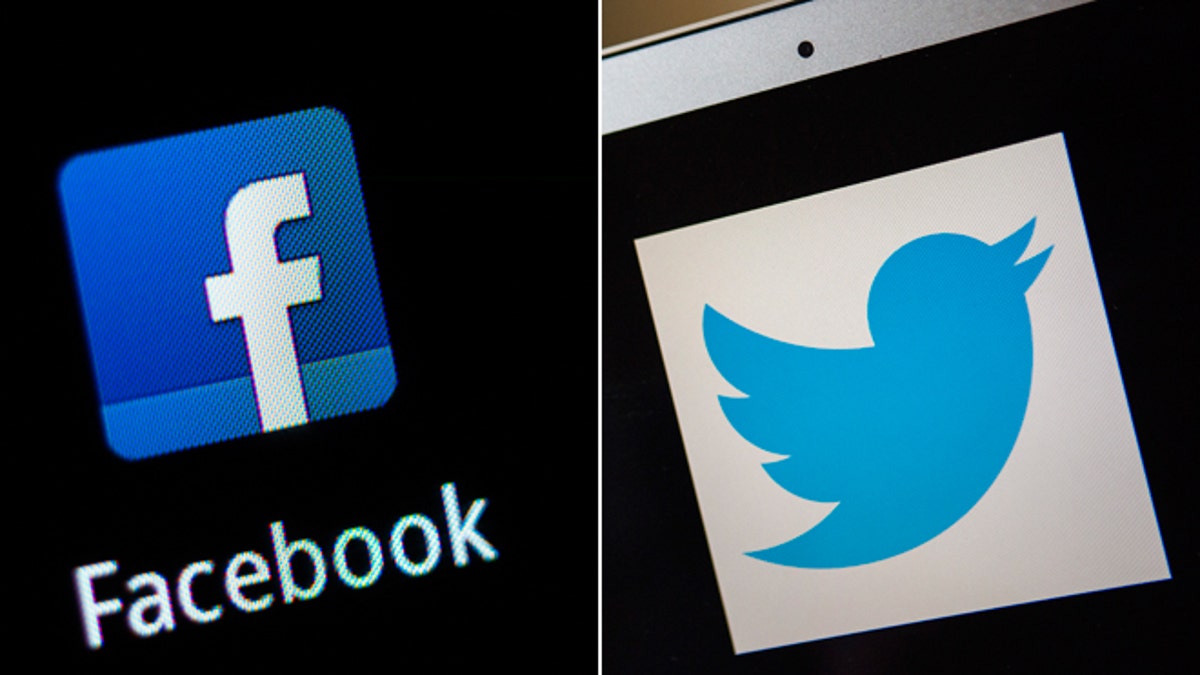
A Facebook application logo is pictured on a mobile phone in this photo illustration taken in May 16, 2012 next to a portrait of the Twitter logo in Ventura, California December 21, 2013. (Reuters)
Social media have a reputation as a place for people to pop off. Turns out lots of people avoid doing that, especially if they think others will disagree.
A Pew Research Center survey uses Ed Snowden’s revelations about the NSA surveillance program as a case study. Some 86 percent of those surveyed were willing to talk about the issue in person, but just 42 percent of Facebook and Twitter users would tackle the subject in those forums.
There is even an offline impact: Many Facebook and Twitter users were less likely than other folks to share their opinions face to face if they thought they would draw disagreement from their social media friends and followers.
Keith Hampton, an author of the study, has a term for this self-censorship: “It has been well documented since before the internet that a ‘spiral of silence’ descends when people think their opinions are in the minority when compared to those around them – they don’t want to speak out if they think they hold unpopular views.”
There's a peer-pressure aspect: people are less willing to weigh in on a subject like Snowden, both online and offline, when they think their audiences disagree with them. One reason, of course, is that people often get hammered online by those who disagree with them.
Overall, says Pew, the typical Facebook user, someone who checks it a few times a day, is half as likely to have an NSA discussion during a physical encounter than a non-Facebook user.
The typical Facebook user – someone who logs onto the site a few times per day – is half as likely to be willing to have a discussion about the Snowden-NSA issues at a physical public meeting as a non-Facebook user.
Tweeters are even more timid. A typical Twitter user is one quarter as likely to share opinions in the workplace as a web user who’s not on Twitter.
Not surprisingly, those who had strong feelings about Snowden and the NSA, or who felt more knowledgeable, were more willing to talk about it than those with less intense feelings. So maybe the passionate feelings vented on Twitter and sometimes Facebook really represent the views of a more engaged minority.












































